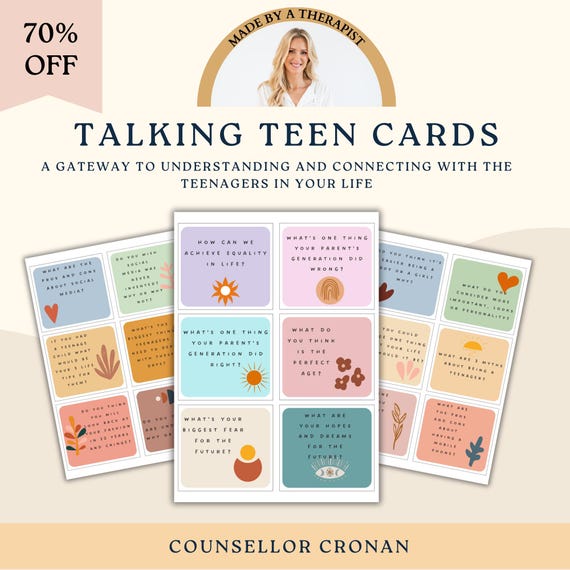Teenage counselling near me can encourage healthy mental balance
Just How Young Adult Treatment Can Empower Young Minds and Advertise Growth
Teenager therapy plays an essential duty fit the psychological wellness of teens. It resolves the one-of-a-kind difficulties they encounter, fostering emotional awareness and strength. By discovering numerous therapeutic techniques, young people can create important coping approaches. This process not just help in personal development however likewise boosts their capacity to navigate relationships. Understanding the dynamics of this healing journey reveals much deeper understandings right into just how it can essentially change their path towards the adult years.
Understanding the Value of Mental Health in Teenagers
Why is mental wellness vital for young adults throughout their formative years? This period is noted by rapid physical, emotional, and cognitive changes. Adolescents commonly browse facility social characteristics, scholastic pressures, and the quest for identity, making mental health and wellness an important component of their general health. Healthy and balanced mindsets allow young adults to create durability, grow self-esteem, and take care of tension properly. Addressing mental health problems early can stop long-lasting psychological complications, allowing teenagers to prosper academically and socially.
Comprehending psychological wellness in teens includes acknowledging the one-of-a-kind difficulties they encounter. Awareness and support can cultivate open communication, allowing young individuals to express their feelings and seek help when required. By focusing on psychological health and wellness, society can encourage teens to develop coping strategies, create healthy and balanced partnerships, and achieve their full capacity. Inevitably, nurturing psychological wellness during these formative years lays the structure for a well balanced, fulfilling adulthood.
Typical Difficulties Faced by Teenagers
Teenagers usually come across numerous difficulties that can considerably influence their psychological wellness. Emotional regulation battles, peer stress characteristics, and academic anxiety administration prevail issues that shape their experiences. Resolving these difficulties is vital for promoting durability and empowerment in young adults.
Psychological Guideline Struggles
Many teenagers encounter substantial psychological guideline has a hard time as they navigate the complexities of teenage years. This developmental stage is marked by changing emotions, typically resulting in difficulty managing feelings such as despair, temper, and anxiousness. Youthful individuals may find themselves bewildered by their emotional actions, resulting in impulsive behavior or withdrawal. Factors such as hormone modifications, public opinions, and academic difficulties aggravate these struggles. Numerous teenagers do not have the coping methods essential to share their emotions suitably, which can result in conflicts in connections and impede individual growth. Furthermore, sensations of seclusion might arise, as they commonly think their experiences are one-of-a-kind. Recognizing and dealing with these psychological regulation issues via treatment can encourage adolescents to develop much healthier coping devices and foster resilience.
Peer Stress Characteristics
Navigating the psychological turbulence of teenage years usually brings teens in person with peer stress characteristics. This effective influence can significantly shape their options, actions, and self-image. Teens might really feel urged to comply with their peers' expectations, causing dangerous actions, such as compound usage or unhealthy partnerships. The desire for acceptance and concern of denial heighten these pressures, typically causing inner conflict. Teens might struggle to assert their individuality, fearing backlash from their colleagues. Therapy can supply a risk-free area for young people to check out these characteristics, allowing them to establish methods for withstanding adverse influences (teenager therapy). Via empowerment and self-awareness, teens can discover to navigate peer pressure much more properly, promoting strength and promoting healthier decision-making

Academic Stress Administration
How do scholastic pressures impact the health of young adults? For lots of teens, the search of high qualities and college readiness usually causes overwhelming tension. This tension shows up in various methods, consisting of anxiety, clinical depression, and physical health and wellness issues. The anxiety of failure and the ruthless competitors can produce a harmful environment that hinders psychological and social advancement. In addition, impractical expectations from educators and moms and dads can exacerbate sensations of insufficiency. Young adults might have a hard time to balance academics with extracurricular tasks, better increasing their anxiety levels. Reliable academic anxiety monitoring strategies, such as time monitoring, leisure techniques, and looking for support, end up being essential. By dealing with these challenges, therapy can encourage adolescents to develop much healthier coping systems, cultivating durability and advertising overall well-being.
The Duty of Therapy in Teen Development
As teenagers transition via the intricacies of teenage years, treatment becomes a vital support system, promoting psychological resilience and personal development. Throughout this formative period, teens face identity, peer pressure, and psychological turmoil. Therapy provides a risk-free room for them to explore their sensations, thoughts, and habits without judgment. This exploration improves their self-awareness, enabling them to comprehend their emotions and reactions more deeply.
In addition, treatment assists teens develop coping strategies to handle anxiety and stress and anxiety, important abilities that will certainly profit them throughout life. By taking part in restorative discussions, young adults learn to articulate their needs and establish healthier connections. This process not only promotes individual growth however also contributes to much better communication and dispute resolution abilities. Inevitably, therapy functions as an important device in guiding teens towards positive advancement, equipping them to navigate the obstacles of teenage years with self-confidence and resilience
Methods Used in Young Adult Treatment
In teenager therapy, numerous methods are utilized to promote empowerment and individual development. Cognitive Behavioral Methods concentrate on reshaping negative idea patterns, while Expressive Arts Treatments encourage self-discovery via imaginative expression. With each other, these approaches provide adolescents with valuable devices to navigate their psychological and mental difficulties.
Cognitive Behavior Methods
Cognitive Behavioral Methods (CBT) play an essential role in teenager therapy, especially as they deal with the one-of-a-kind obstacles encountered during adolescence. These techniques concentrate on determining and modifying unfavorable idea patterns that add to emotional distress and behavior issues. By motivating young adults to recognize illogical ideas and change them with useful thoughts, CBT promotes resilience and coping approaches. Therapists frequently employ tools i thought about this such as thought records, behavioral experiments, and exposure tasks to help adolescents challenge their fears and establish healthier responses. Moreover, CBT highlights goal-setting, which equips teenagers to take possession of their development. This organized technique not just relieves symptoms of anxiety and depression yet additionally furnishes young individuals with skills to navigate life's challenges a lot more efficiently.
Expressive Arts Therapies
While typical talk therapies might not reverberate with every teenager, Meaningful Arts Treatments provide an alternate strategy that utilizes creativity as a method of self-expression and recovery. This method includes various art types, including paint, dance, music, and drama, permitting teenagers to connect feelings and experiences that might be challenging to verbalize verbally. Participating in these imaginative procedures can foster self-discovery, increase confidence, and assist in emotional handling. The non-judgmental environment of expressive arts allows young adults to explore their identities and cope with challenges in a helpful setup. By incorporating meaningful arts right into therapy, practitioners can supply an alternative technique that not only addresses emotional struggles yet also encourages young minds to flourish and expand.
Building Strength Via Therapeutic Practices
As teens browse the complexities of their developmental years, building durability with healing practices becomes essential for their psychological health. Reliable restorative strategies, such as cognitive-behavioral treatment and mindfulness methods, encourage young adults to confront obstacles and create dealing methods. By discovering to identify and handle their feelings, young people can cultivate a better sense of self-efficacy.

Taking part in treatment allows teenagers to discover their thoughts and sensations in a secure environment, promoting flexibility despite hardship. This procedure motivates them to see obstacles as possibilities for development instead than overwhelming challenges. Team treatment setups further boost strength by fostering social connections and supplying peer support, reinforcing the concept that they are not alone in their struggles.
Inevitably, therapeutic techniques act as vital tools, furnishing teens with the skills needed to navigate life's difficulties and emerge stronger and extra durable in their trip towards adulthood.
The Long-Term Advantages of Engaging in Therapy
Involving in therapy during adolescence can yield significant long-term advantages that expand well into their adult years. By dealing with emotional and psychological difficulties early, teens can develop much healthier coping devices that persist throughout their lives. Therapy promotes self-awareness, equipping young people to comprehend their feelings and thoughts much better, which these details can result in enhanced decision-making abilities.
Constant restorative engagement can boost interpersonal relationships. Teenagers frequently discover efficient communication and conflict-resolution techniques, which can enhance links with peers, household, and future colleagues. This structure of emotional knowledge frequently leads to enhanced strength versus stress and misfortune.
Furthermore, people who take part in treatment during their developmental years might experience lowered threats of psychological health and wellness concerns later in life. Inevitably, very early restorative treatment outfits young adults with crucial devices for browsing life's intricacies, promoting both individual growth and total wellness as they shift into their adult years.
Often Asked Inquiries

Just How Can Parents Support Their Teens During Treatment Sessions?
Parents can support their teens during treatment sessions by actively paying attention, respecting their privacy, encouraging open communication, and confirming their feelings. They ought to likewise continue to be person and understanding as their teenagers navigate the therapeutic procedure.
What Should a Young adult Anticipate in Their Very First Therapy Appointment?
In their very first therapy consultation, a teenager can anticipate an introductory conversation, discussing their feelings and worries. The specialist will certainly develop a risk-free setting, establish goals, and discuss privacy to cultivate count on and openness.
Exist Age Boundary for Teenagers Looking For Therapy?
There are normally no strict age limitations for young adults seeking therapy; nevertheless, solutions might differ by service provider - counselling for teens. A lot of therapists think about customers aged 13 to 19, while more youthful kids could need adult participation or alternative resources
Just How Can Teens Find a Therapist They Link With?
Teenagers can locate a specialist by seeking recommendations from trusted adults, researching on-line directory sites, or utilizing institution resources. Building connection with first assessments aids make sure a comfortable connection, important for effective therapy and individual growth.
Is Online Therapy Effective for Young Adults?

Online treatment can be reliable for young adults, providing adaptability and access. Several young people appreciate the convenience of virtual sessions, which can improve visibility and facilitate communication, inevitably adding to their psychological wellness and individual content growth.
Teen treatment plays a crucial duty in forming the psychological well-being of teenagers. In teenager therapy, different strategies are used to cultivate empowerment and individual development. Cognitive Behavior Methods (CBT) play a vital function in teenager treatment, particularly as they attend to the distinct difficulties encountered during teenage years. While traditional talk therapies may not resonate with every teenager, Expressive Arts Treatments provide an alternative technique that harnesses creative thinking as a way of self-expression and recovery. Reliable therapeutic strategies, such as cognitive-behavioral therapy and mindfulness strategies, empower teenagers to challenge difficulties and create dealing strategies.